After decades of planning and pondering, Metro is making significant strides in plotting the future of Willamette Cove — a 27 acre plot of land along the Willamette River in North Portland. Metro bought the land in 1996 and recently released detailed concept renderings of what a future park at the site will look like.
Keep in mind, the federally recognized “superfund” site (along with all the riverfront land from the Steel Bridge to the Columbia River) was the location of heavy industry a century ago and toxins that remain in the soil still require a massive cleanup effort. But that hasn’t stopped Metro and the community who live around the site to envision how they’d like to access the park in the near future.
Metro released designs for the future nature park on Monday. “The design brings together trails, viewpoints, locations to access the water, areas for quiet reflection, restored habitat for plants and wildlife, and places for learning and gathering,” Metro says on their website.
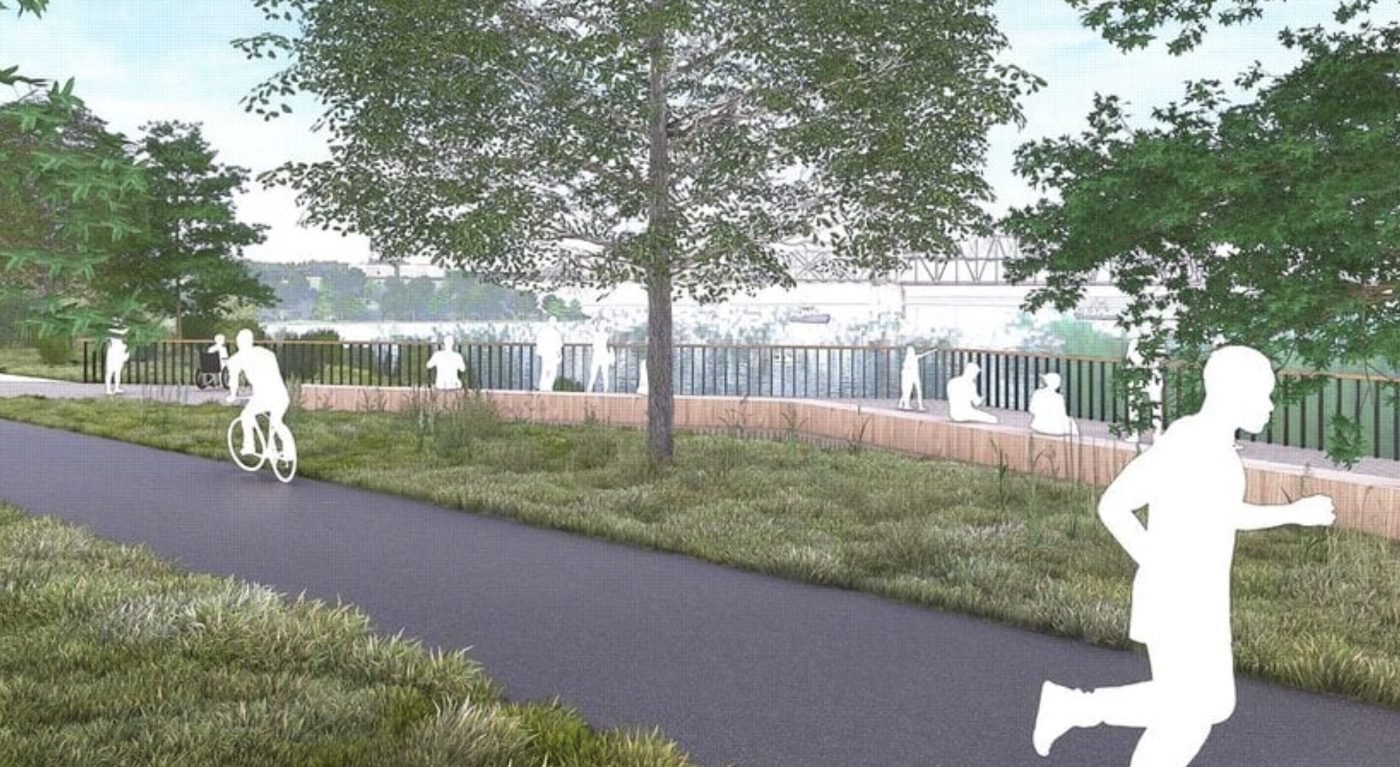
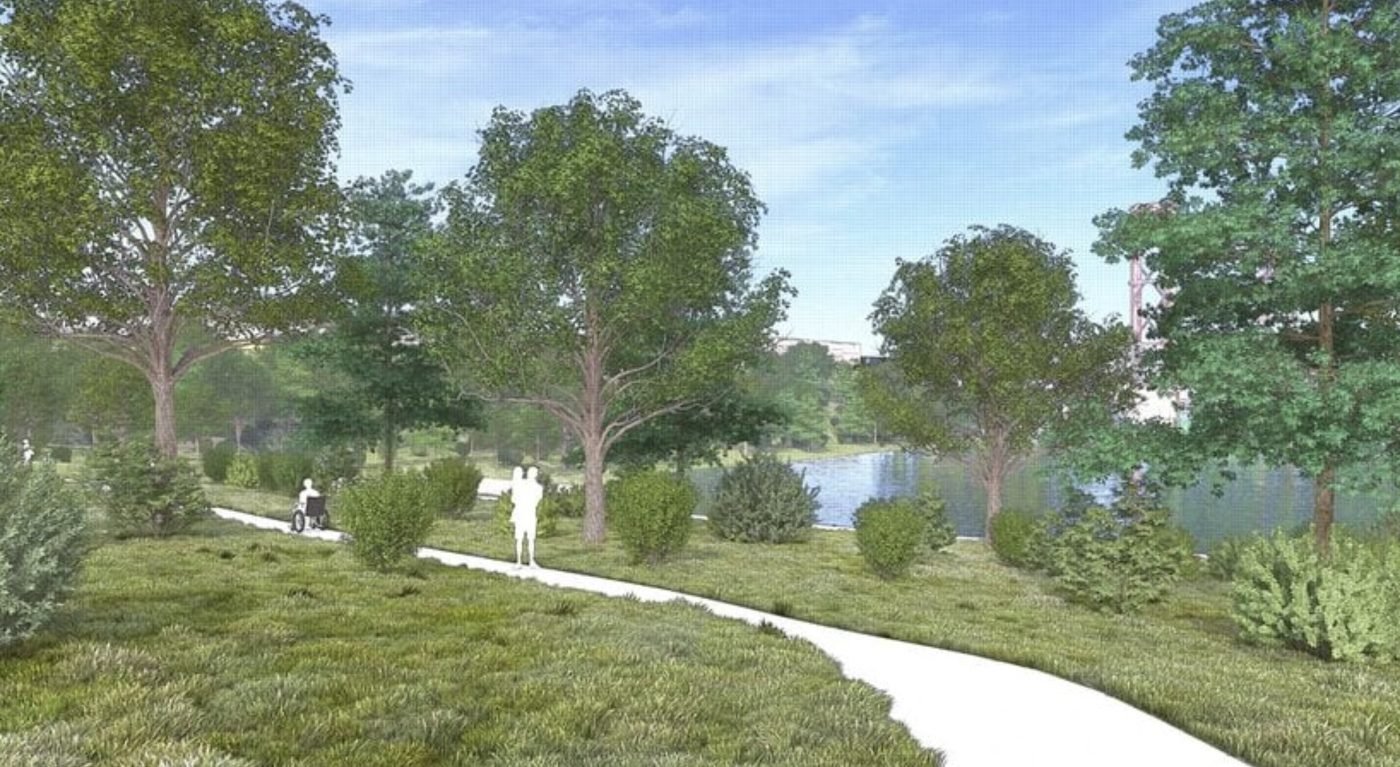
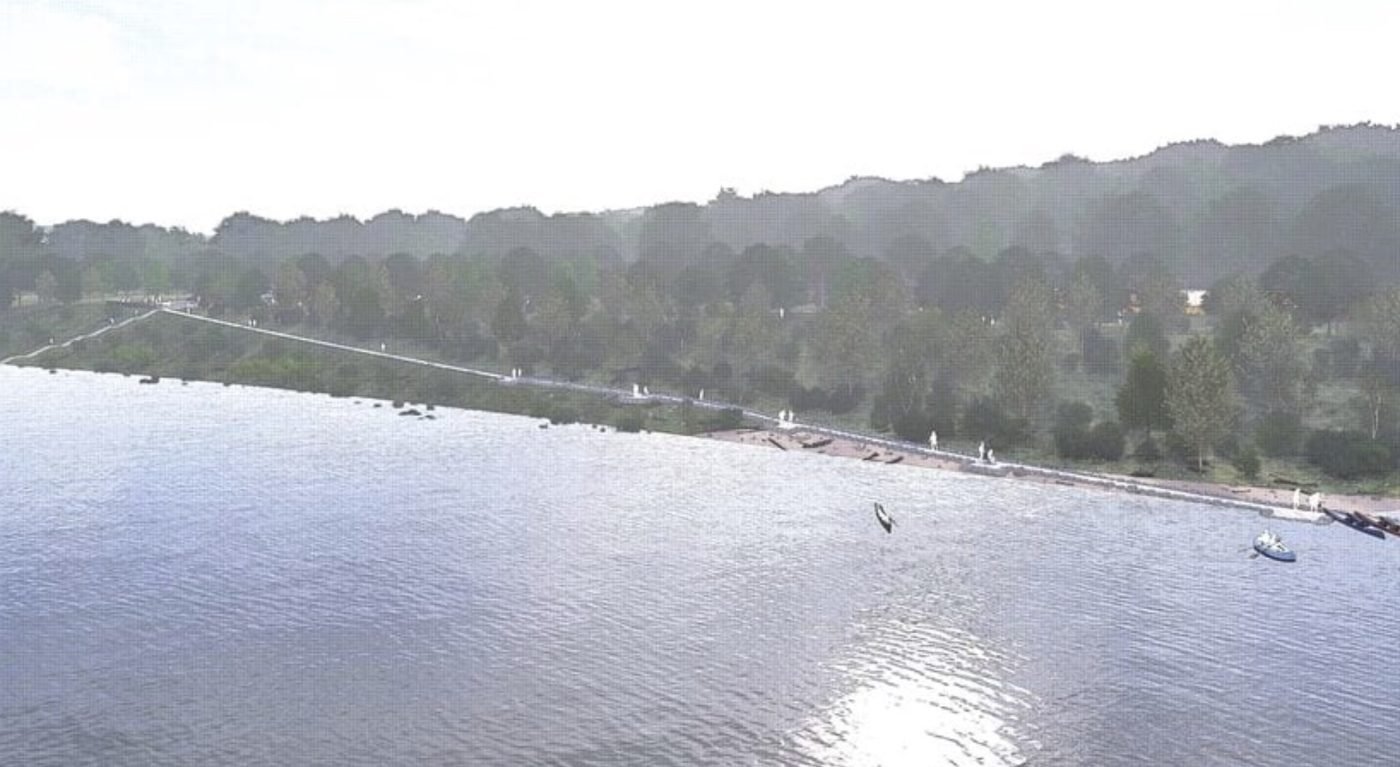
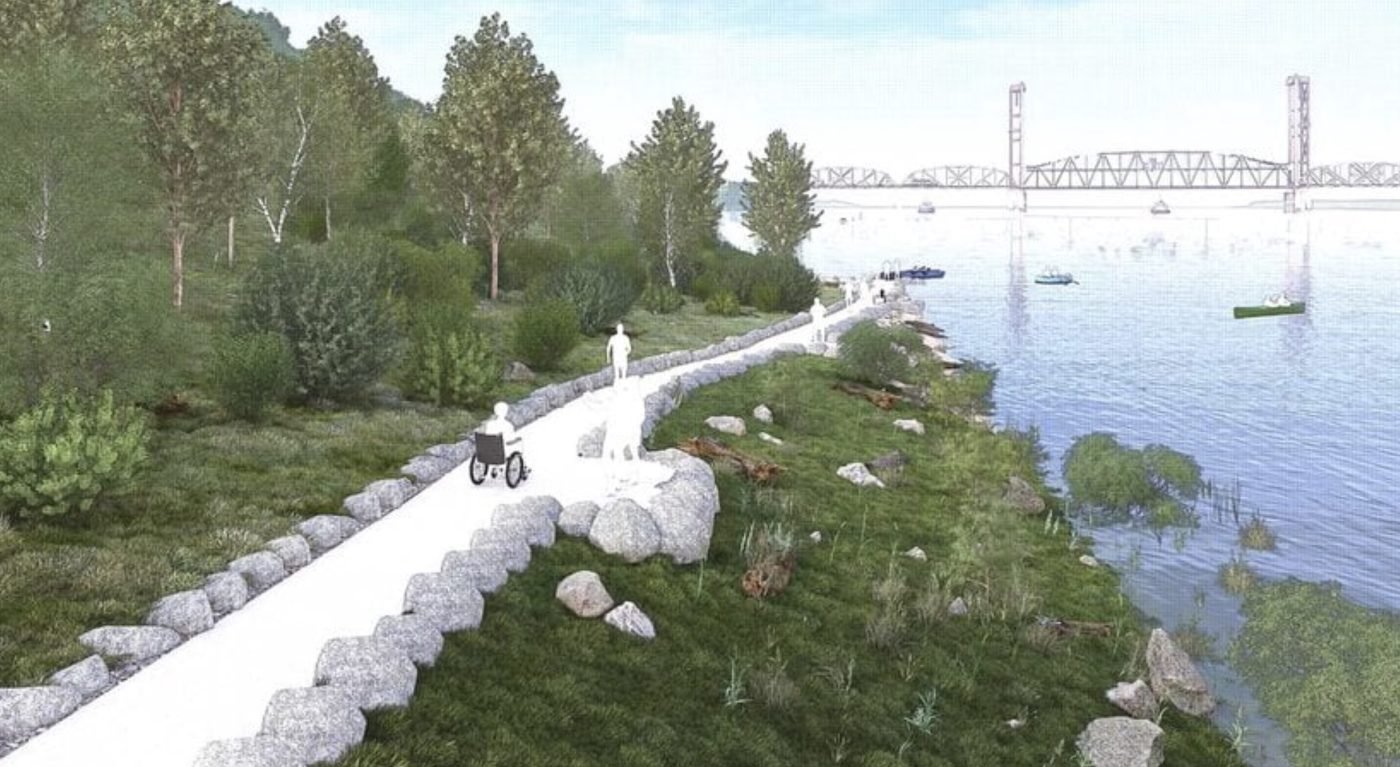
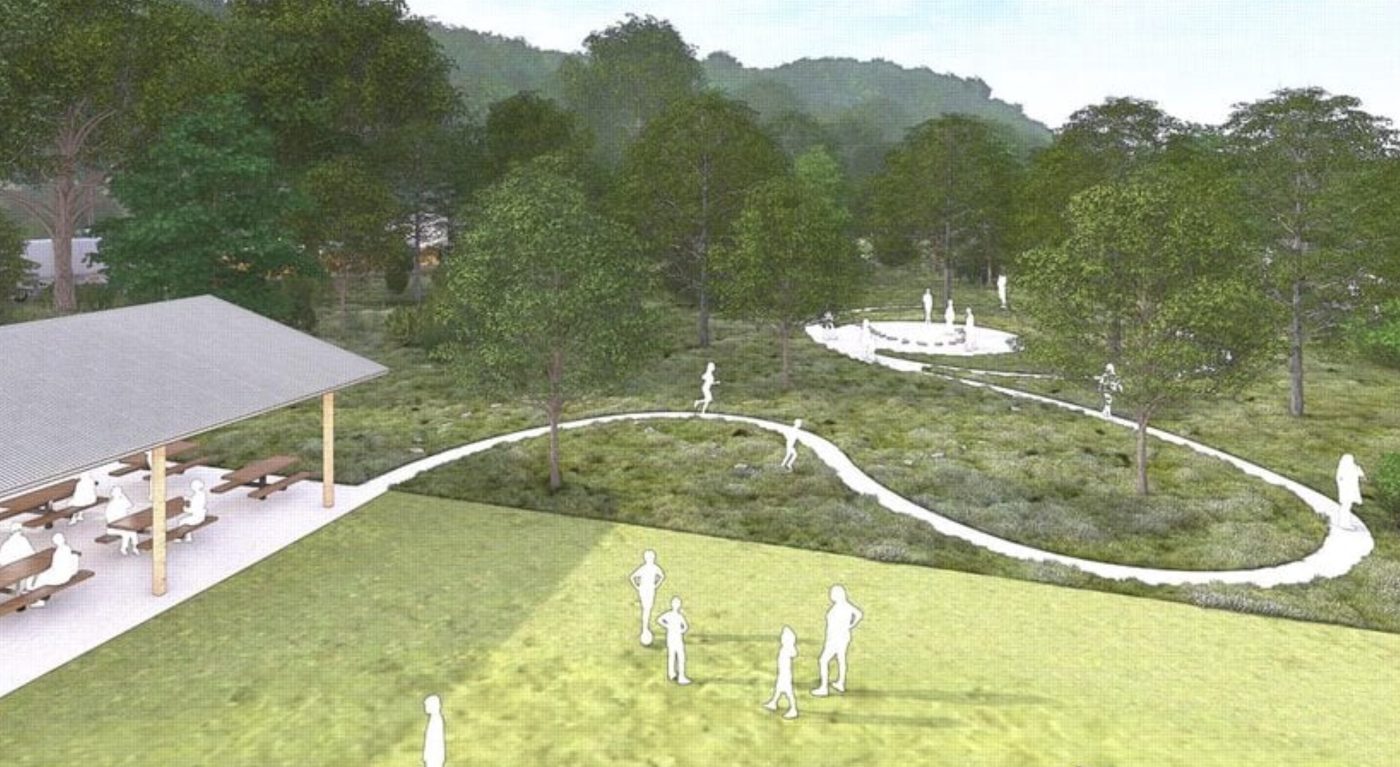
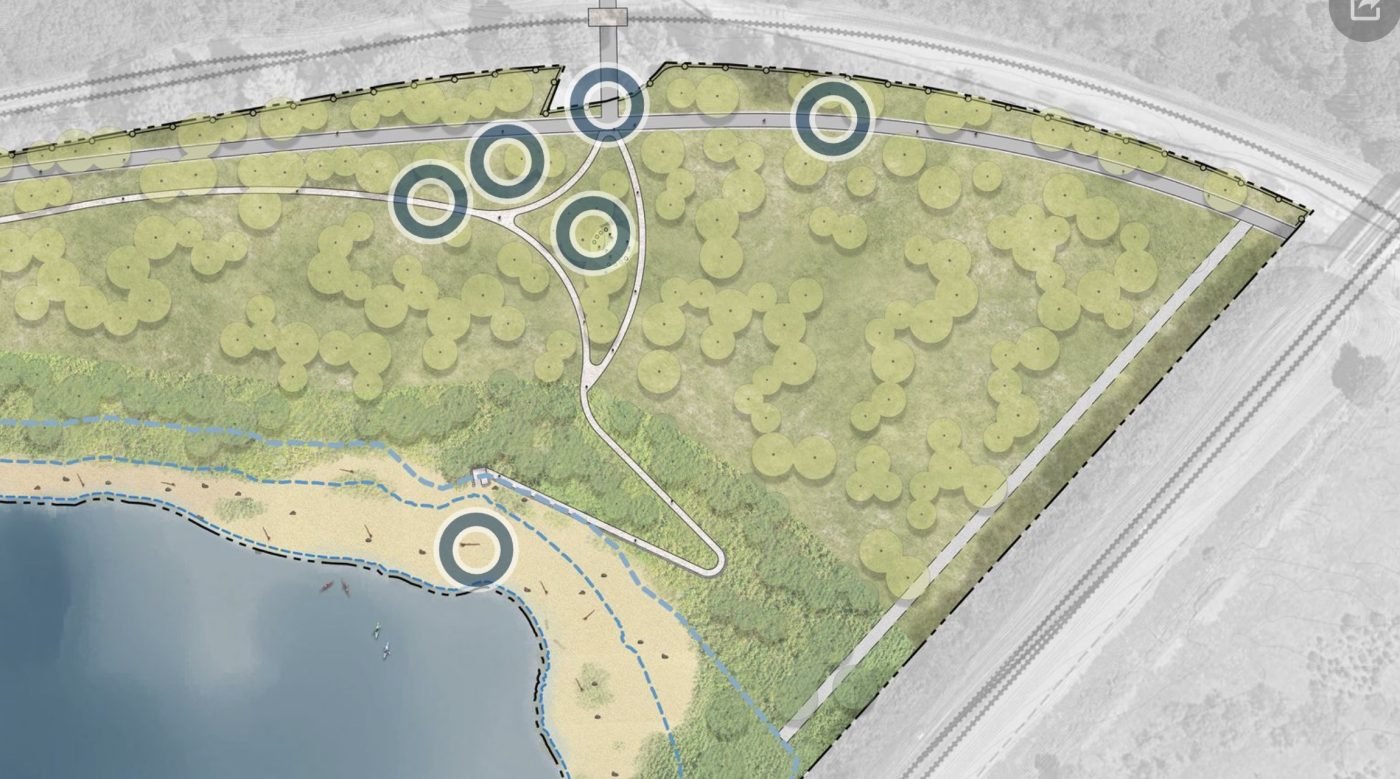
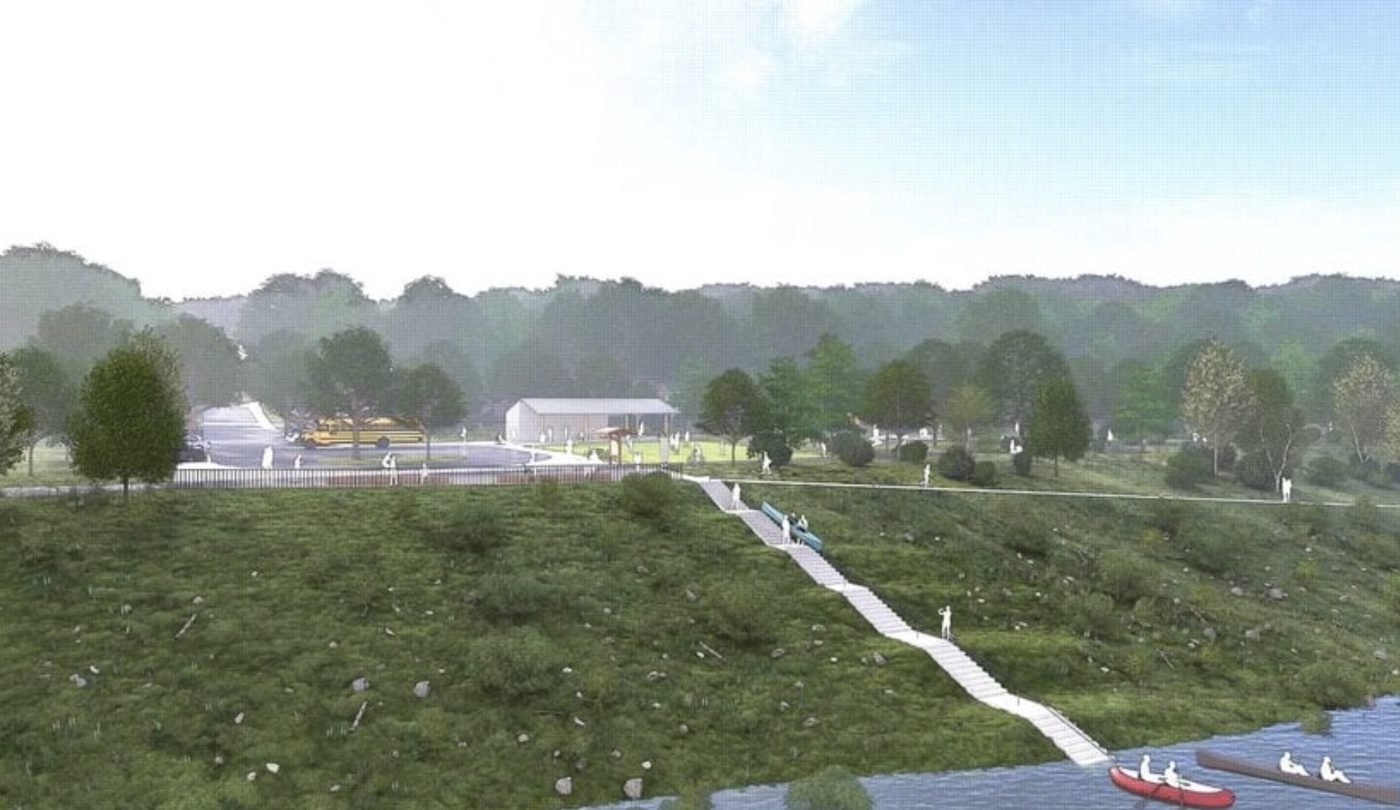
The park is bordered by N Richmond Avenue in the north and a BNSF railroad line (and bridge) to the south. The current plan is to build a parking lot and main entrance off of Richmond Ave. The parking lot would have bike parking too, and folks would be able to access two paths. One of the paths will be the future North Portland Greenway and would be a 12-foot wide paved experience, and the other would be a more park-specific 4-6 foot wide nature trail for a, “more immersive, habitat-focused experience.”
Metro considered building a path over the water, similar to the floating section of the Eastbank Esplanade; but project managers ultimately rejected the idea due to concerns about cost and complexity. “We believe this decision aligns with what we heard from community members,” Metro states. “During the second round of engagement, we asked about tradeoffs between different design elements. In our survey, 71% of respondents said the walkway was not worth the cost of giving up other park elements.”
As Metro continues to refine a preferred design for the park, they’ll add this to the Willamette Cove Comprehensive Plan which will then go to the full Metro Council for adoption. When might we be able to walk and roll at this cool new park? One year ago, the Metro staffer in charge of community engagement on the project said the public could begin visiting the park by 2029. But I’ve heard just today from Metro that the new estimated opening date is 2032.
Learn more about the Willamette Cove Nature Park design and sign up for project updates here.



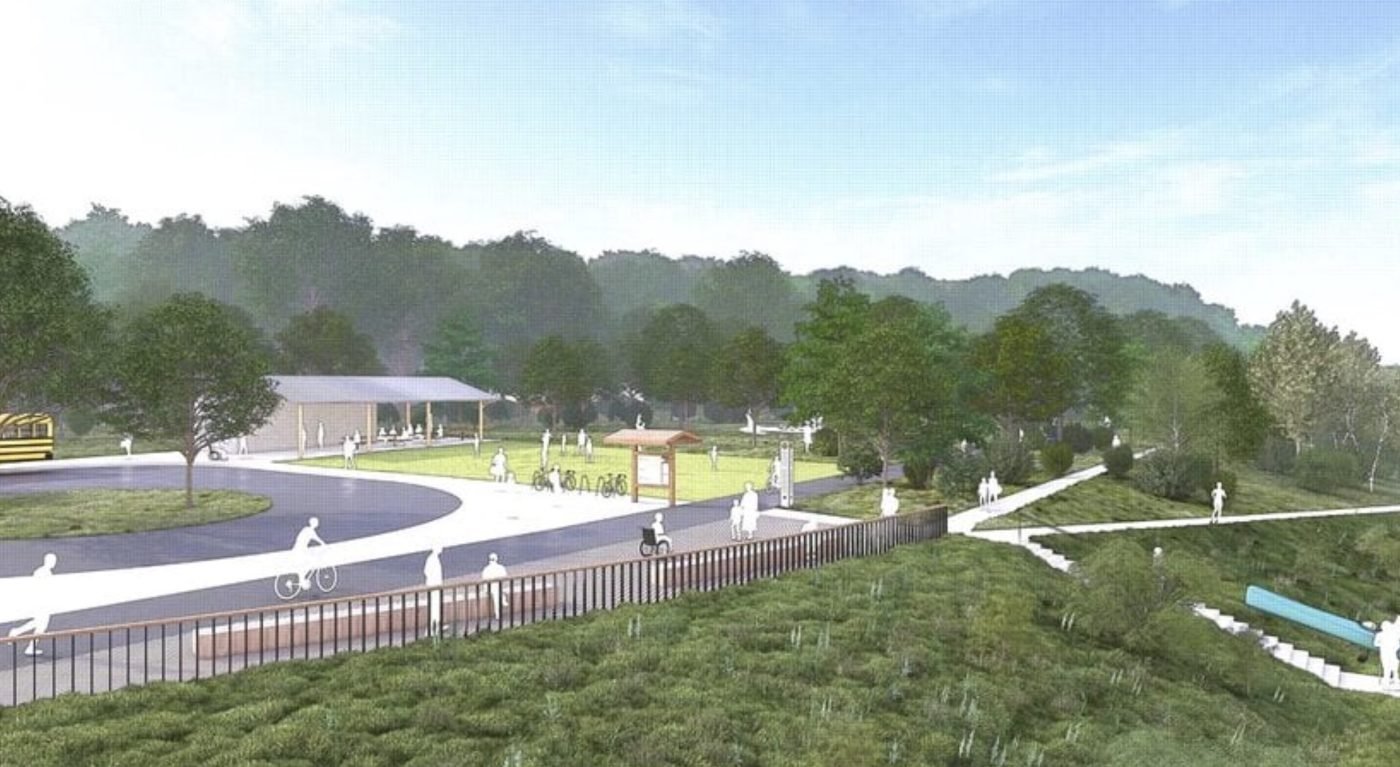
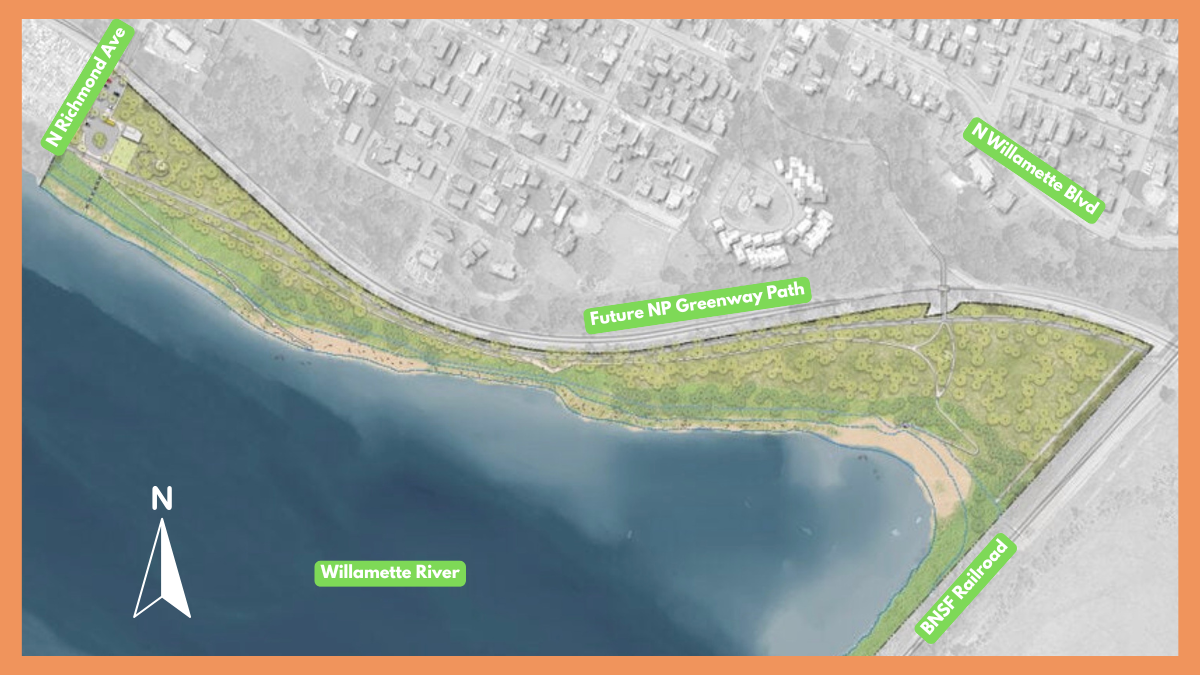
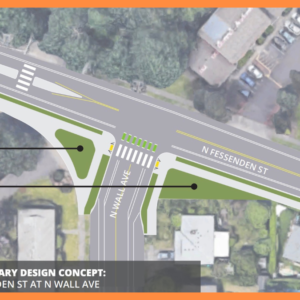

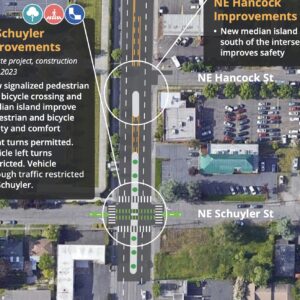

Thanks for reading.
BikePortland has served this community with independent community journalism since 2005. We rely on subscriptions from readers like you to survive. Your financial support is vital in keeping this valuable resource alive and well.
Please subscribe today to strengthen and expand our work.
Here’s a link for anyone who isn’t sure where this is:
https://www.google.com/maps/place/Willamette+Cove/@45.5811715,-122.7445719,14z
This is very exciting! Though one thing that’s unclear from the renderings is how they plan to prevent cars from driving onto the regional trail. I hate that that’s even a thing we have to consider, but if we’re building a new park at this point it feels like a mistake to not consider it given how often cars drive into other parks and trails.
I’m sure there will be gates or bollards. N Edgewater Road (the one that goes down from Willamette Blvd near Cathedral Coffee) already has a gate to prevent car traffic near the top of the bluff, so that one will make for a good ped/bike connection. But I would be surprised if the regional trail near the Richmond Ave entrance didn’t have bollards or something like that to prevent people from driving on the path. Everyone knows what happened on the Peninsula Crossing Trail before they put in physical barriers.
I look forward to enjoying this area someday. Hopefully I’m still alive by the time this area is ready for public use and recreation. But given that I’m in my fifties and this area is a toxic pollution site, I am not going to hold my breath.
It’s the river sediments that are contaminated, not the soils. Point is that the primary risk vector for the contamination at the Portland Harbor superfund site is subsistence fishing. Don’t eat (too much of) the fish and don’t ingest sediment. Walking along the water is fine.
Correction — the Portland Harbor Superfund Site sampling and remediation plans, as administered by the EPA, are focused on the sediment.
DEQ is overseeing this upland property, which does require a dig-n-haul soil remediation
The sheer amount of trees they’ll need to remove in order to tackle the poisoned soil is shocking (https://www.opb.org/article/2024/05/20/a-former-industrial-site-in-north-portland-inches-closer-to-becoming-a-nature-park/). I think 2032 is optimistic. It will take decades for this area to recover post replanting.
Sounds like an incredible net positive though.
Very excited for this project have some momentum. I am bummed that it will be a Metro facility. Metro does not do a great job with recreation. They have not demonstrated adeptness at deigning or managing parks like with important ecological functions and critical recreational connections. The overall approach looks OK, but the design details are very amateurish. I am surprised that Metro would publish these graphics.
I have the opposite sense about Metro. They have added way more miles of bike-legal trail in recent years than Portland Parks.
My primary concern with Metro being in charge is that they default to banning dogs in natural areas. Hopefully without the presence of sensitive streams in this area, they can allow our puppers here.
THANK YOU METRO! BUT before this project, METRO should FUND and BUILD the North Tualatin mountains first!!!